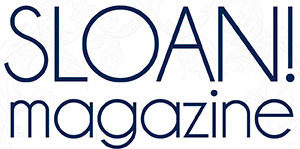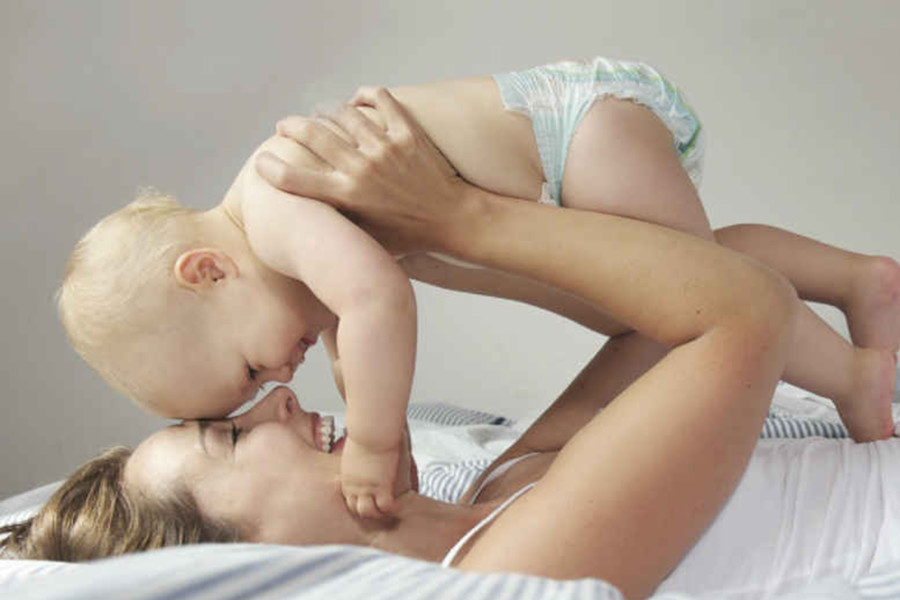When thinking about stimulating a baby’s senses, most people focus only once baby is here. However, a baby has their first conscious sensory connection in the womb and from around 24 weeks gestation. Childcare expert Angela J Spencer, author of Babyopathy, share ten ways you can develop your baby’s sense in the first year.
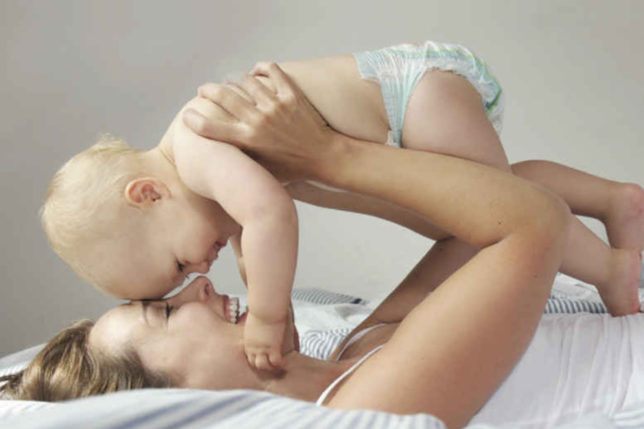
1. First Sensory Connections
From around 24 weeks your baby will begin to experience their first conscious sensory connections that will continue throughout their life. One of the easiest ways to stimulate this and their language development is to talk to them! By the time they are born, they will recognize the familiar tones and patterns of your voice and by continuing to talk to them you will be developing their language skills.
2. NO screens!
We are seeing a huge rise in developmental delays, particularly language and also behavioural concerns and one of the biggest causes are screens! A baby under two (under 5 in my opinion) should not be given a screen as constant use can cause a malformation of neural pathways and subsequently developmental delays.
3. Essential oils
Oils are a great way to influence the first stages of your baby’s development such as creating a sleep routine. Creating a sensory oasis when they sleep with familiar essential oils helps to train the brain that this means sleep and encourage a deeper more relaxed sleep too!
4. Music
Music too can help play its part in this sensory oasis. By using familiar music that is relaxing, such as nature sounds or soft classical will also encourage a familiar bedtime routine. It doesn’t need to stop there, you can use music throughout the day to create routines and familiarity; for example, soft jazz aids the digestion and so is a great accompaniment to meal times and you can encourage table manners too by sitting at the table nicely until the music stops.
5. Textures
You will be surprised just how much a baby can learn from what they touch, after all this is their first mode of experiencing most things. They will grasp your finger for security and build on that skill to experience many things including their first finger foods. I am a huge advocate of reading with babies (that’s the next tip) and books such as the ‘That’s Not My…’ range are full of different textures to help your baby to experience – don’t forget to tell them what they are experiencing too!
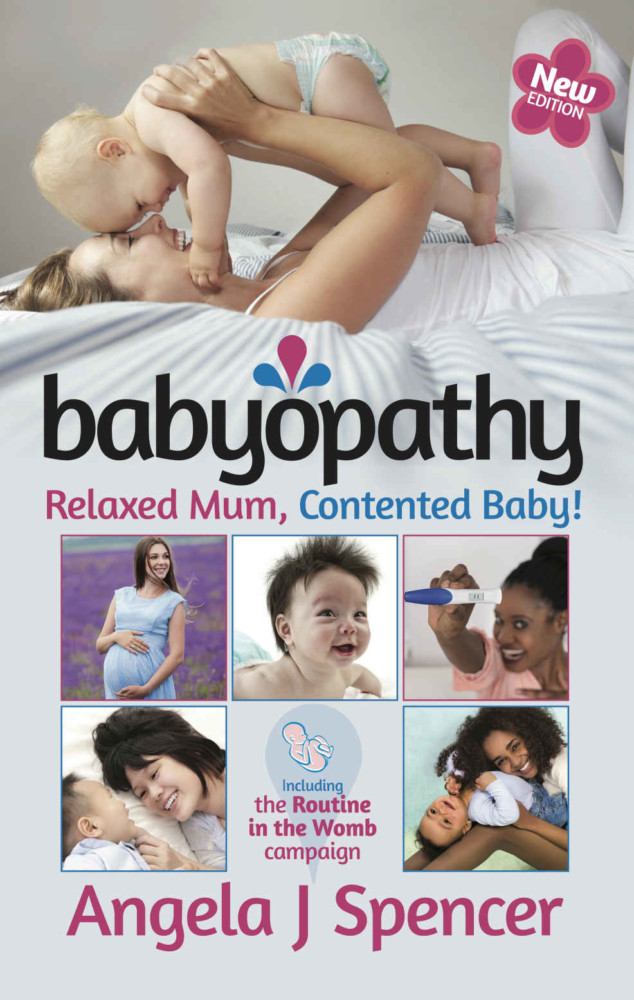
6. Books
Reading to your baby is vital to many aspects of their development and of course one of those being their language skills. But, did you know that if you read to them whilst in the womb you are helping them to recognize familiar tones and patterns in voices as well as language patterns. One of my favourites is ‘Dear Zoo’ as you can be quite expressive in your voice.
7. Playing in Nature
You do not need lots of expensive toys and you really don’t need all the plastic ones! We live in a natural world and we are intrinsically linked to it, it nurtures our natural development, which is called the biophilia hypothesis, something Babyopathy is based upon. Playing in nature, laying babies on the grass and letting them feel it, playing in the dirt, and seeing and experiencing a multitude of colour and textures gives you a multitude of vocabulary and opportunities to stimulate development with things such as counting flowers or petals, collecting differential objects; large and small and colour groups etc. The world is literally your playground!
8. Natural Resources
We have already established that you don’t need the expensive toys and the natural world is your oyster when it comes to a playground. However, your home and the things in it are your resources! Wooden spoons and saucepans make fabulous instruments, pasta and other ingredients make great craft activities and messy play and even your magazines can be a source of photos for a collage. The list is endless but again offers unrivalled opportunities for language, special awareness, physical and emotional skills to name but a few.
9. No Over-Stimulation
A baby learns by experience and example. They will copy everything you do as you will know from that first smile in response to yours that melts your heart. However, too much stimulation is detrimental and can leave them stressed. If you are going to go somewhere or to a class that is a sensory overload, be aware of your baby’s signs of distress and leave for a more relaxed environment. I have seen so many babies leave some sensory classes red-faced, in tears and completely over-stimulated and stressed, which then disrupts their sleep and feeding patterns and makes for a very stressed mum too!
10. You
You are the biggest source of your baby’s development. Yes, the odd class is fun for a social development point of view but you are their greatest teacher. A baby is a blank canvas, they do not know hatred, anger or prejudice for example, it is a learned behaviour or a responsive one. Similarly, they do not know compassion, respect or manners so need to be shown. Most importantly, they will not learn anything if you are completely preoccupied with your own screen. Just as it is important for your baby not to use a screen, it is more important that you don’t (or at the very least limit it!). Your baby needs your time, your attention, your knowledge and experience and most of all your presence in the moment.
About the expert
Angela J Spencer has owned and operated children’s nurseries for over 25 years – opening her first in 1993 at the age of 21 – and was named in the Top 10 most influential people in Childcare by NMT Magazine in 2017 before finally selling the nurseries in 2018.
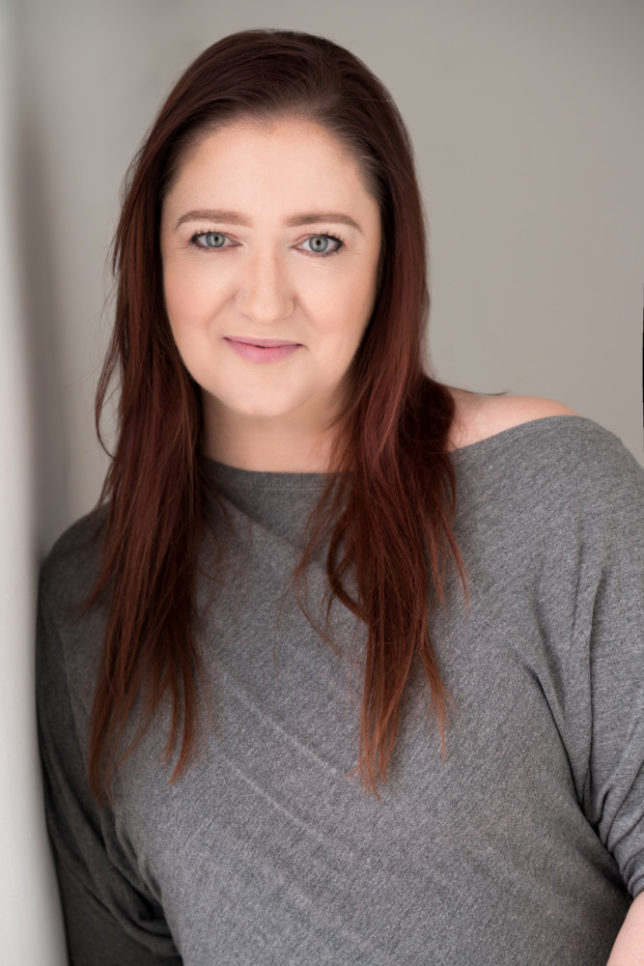
Babyopathy, Angela’s baby & child development programme, prioritises sensory stimulation and was named as Mother & Baby Magazine’s ‘New Routine for 2017. Her new book Babyopathy (2nd Ed.) empowers women to have a positive and relaxed pregnancy and early years.
